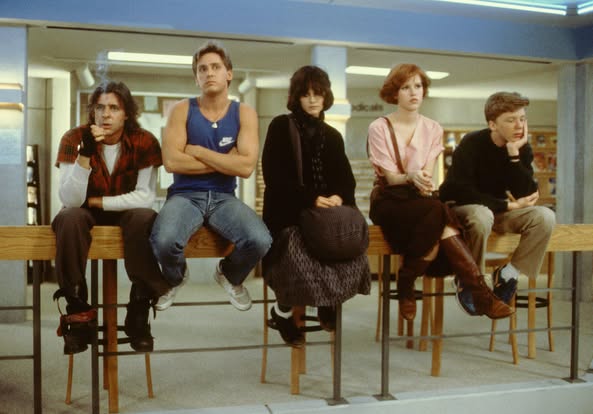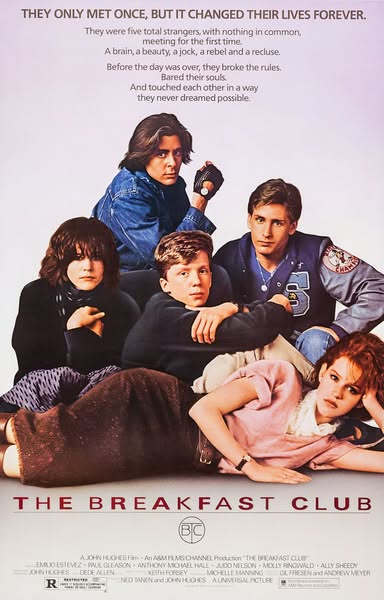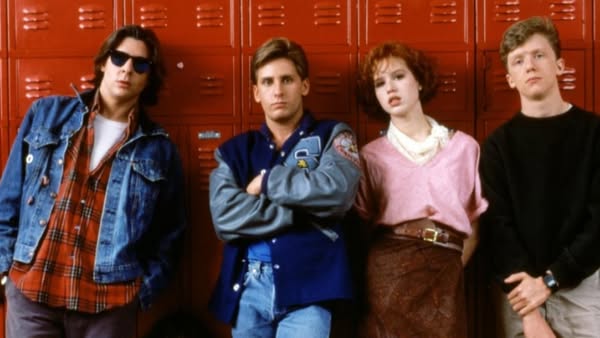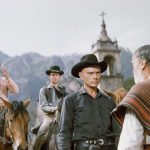The Breakfast Club (1985)

The Breakfast Club is a timeless cinematic classic that has left an indelible mark on the landscape of teen films. Released in 1985, it captures the essence of adolescent struggles and the complexities of social dynamics within a high school setting. The film is often celebrated for its insightful portrayal of the lives of teenagers, transcending the era in which it was made and continuing to resonate with audiences.
At its core, the narrative revolves around five high school students from disparate social backgrounds—each representing a different stereotype: the brain, the princess, the jock, the outcast, and the rebel. Throughout a seemingly mundane Saturday detention, they are forced to confront their differences and ultimately discover their shared humanity. As the hours pass, the film transitions from a simple setup into a profound exploration of identity, peer pressure, and the longing for acceptance.

The character development is one of the film’s most compelling aspects. Viewers witness the gradual dismantling of each character’s exterior, revealing the vulnerabilities and insecurities that lie beneath. This transformation highlights the universality of adolescent experiences, reminding us that beneath the labels, every teenager grapples with their own challenges. The film skillfully intertwines humor and drama, creating a balanced narrative that keeps audiences engaged while also provoking thought.

The Breakfast Club is classified as a coming-of-age film, a genre that explores the growth and maturation of its characters. It deftly combines elements of drama and comedy, creating a relatable and entertaining experience. The screenplay is sharp, filled with memorable dialogue and quotable lines that have become ingrained in pop culture. The film’s iconic status is further solidified by its compelling soundtrack, which captures the spirit of the 1980s and enhances the emotional weight of the story.

In summary, The Breakfast Club remains a quintessential exploration of teenage life, effectively addressing themes of identity, social pressure, and the quest for belonging. Its relevance continues to endure, as new generations discover the film and find their own reflections within its narrative. Through its poignant storytelling and relatable characters, it serves as a reminder that, regardless of our differences, we all share the same struggles and aspirations during one of the most formative periods of our lives.











